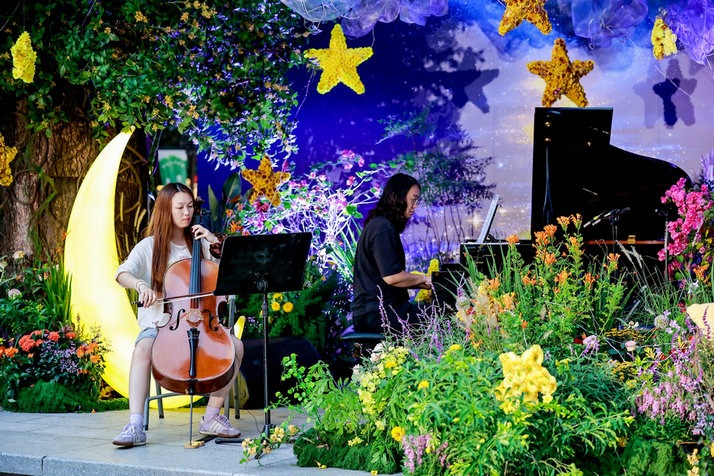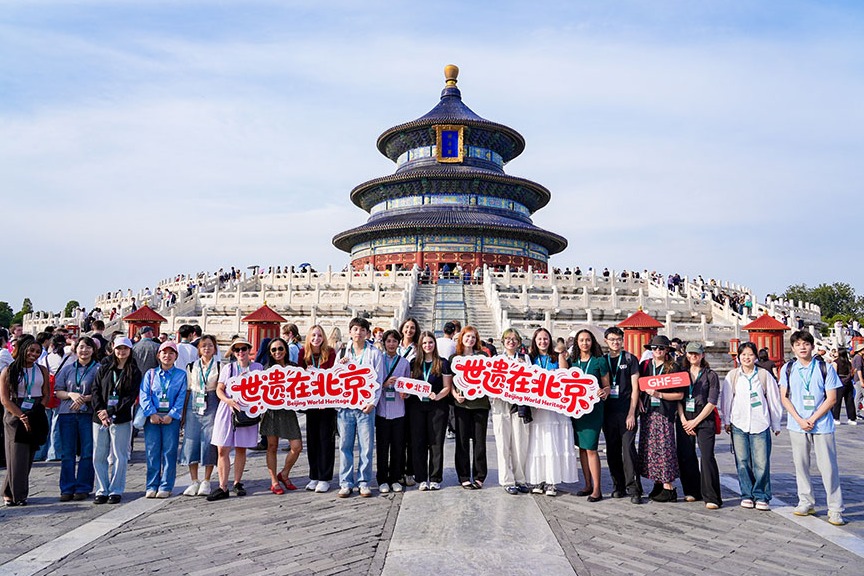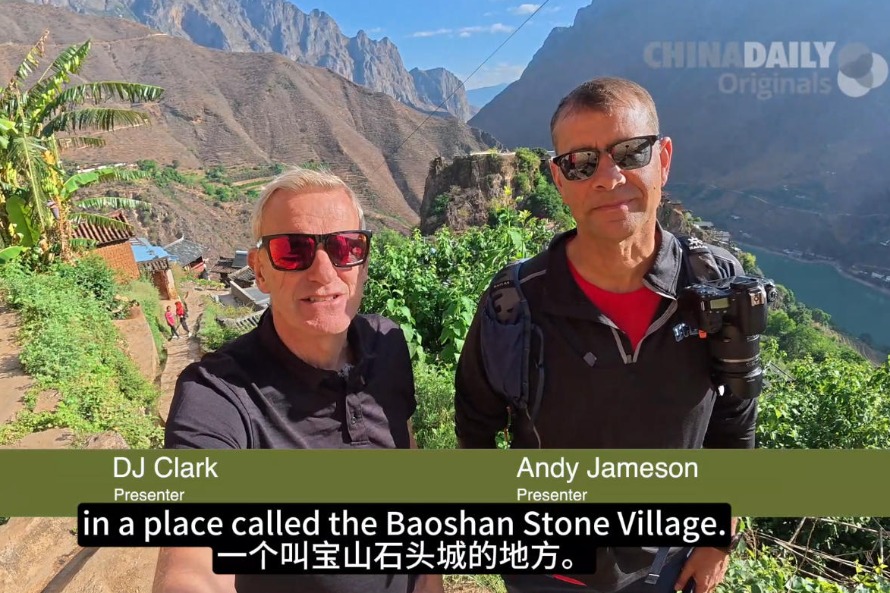World Tourism Alliance's 2025 Xianghu Dialogue begins in Hangzhou

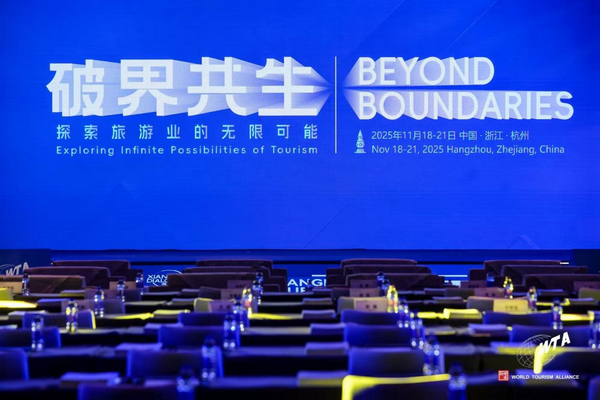
The 2025 Xianghu Dialogue of the World Tourism Alliance (WTA), themed "Beyond Boundaries: Unlocking Infinite Possibilities in Global Tourism", kicked off on Wednesday in Hangzhou, capital of East China's Zhejiang province.
Aligning closely with the latest hot topics and development trends in the global economy and tourism industry, this year's dialogue has gathered nearly 400 distinguished guests from 30 countries and regions. The lineup includes industry leaders and professionals from international organizations such as the World Tourism Organization (UN Tourism), the World Travel & Tourism Council (WTTC), and the Pacific Asia Travel Association (PATA). Representatives from national tourism authorities, key tourism cities, leading enterprises, and renowned research institutions worldwide will also be in attendance. Centering on three core themes — sustainable development, cross-border integration, and technological empowerment — participants exchanged in-depth insights to explore how the tourism industry can break through inherent boundaries and strive toward a more resilient, inclusive, and sustainable future.
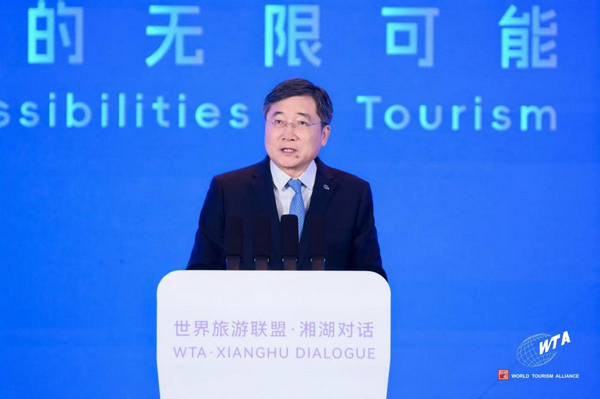
"Today, global tourism stands once again at a critical crossroads, facing both unprecedented challenges and tremendous opportunities," Zhang Xu, chair of the WTA, said in his opening speech. "According to UN Tourism data, international tourist arrivals in 2024 have fully recovered to 2019 levels, with a projected year-on-year growth of three to five percent in 2025. Amid lingering global uncertainties, tourism has demonstrated remarkable resilience, serving not only as a vital bridge for international cultural exchange, but also as a key driver of global economic recovery."
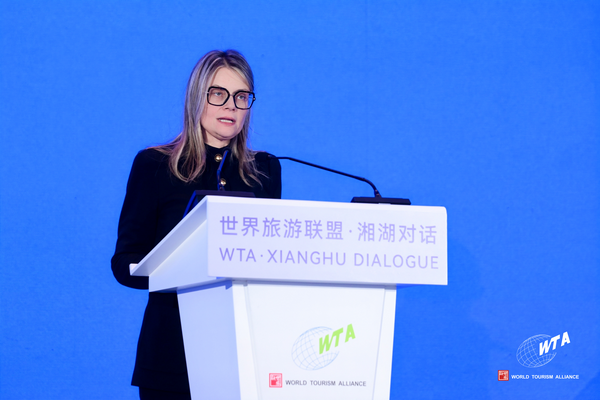
International organizations also emphasized the urgency of deepening cooperation. "I cannot overstate the importance of international cooperation — today's challenges in tourism are inherently transnational, and no single country can address them in isolation, Ivana Jelinic, CEO of the Italian National Tourist Board (ENIT), said. "We aim to join hands with all stakeholders to enhance our storytelling capabilities through digital innovation, and we look forward to collaborating with China in this field to launch more capacity-building initiatives and cross-border cooperation projects."
The 2025 Xianghu Dialogue includes two high-profile parallel events: the "China-Australia Tourism Dialogue Mechanism Conference 2025" and the "China-US Study Travel Dialogue". A delegation from the Australian Trade and Investment Commission met with its Chinese counterparts for in-depth discussions aimed at expanding cooperation in tourism investment and trade. Meanwhile, the Student and Youth Travel Association, a Virginia-based non-profit trade association that promotes student and youth travel with more than 900 member companies in 30 countries, led a group of nearly 20 travel enterprises to meet with Chinese industry representatives to explore market opportunities and the potential for China-US study tourism collaboration.

As a China-based non-governmental and non-profit organization, the WTA is committed to promoting peace, development, and poverty alleviation through tourism. Over the past seven years, it has released reports documenting more than 300 cases of tourism-driven poverty alleviation, demonstrating its unwavering commitment to this mission. During this year's dialogue, two reports — From Poverty Alleviation to Rural Revitalization: China's Practice in Sustainable Rural Development Through Tourism and the 2024-2025 Cross-Border Tourism Consumption Trends Report — were released.
On the evening of the opening day, the Night of Hangzhou tourism promotion event highlighted the city's vibrant tourism resources and impressive technological advancements.
Headquartered in Hangzhou, the WTA was founded by over 260 members worldwide. Since its establishment, it has steadfastly adhered to its mission of "Making Tourism Better for the World and Life", striving to build a global platform for dialogue, resource sharing, and integrated development among all stakeholders in the tourism industry.




















